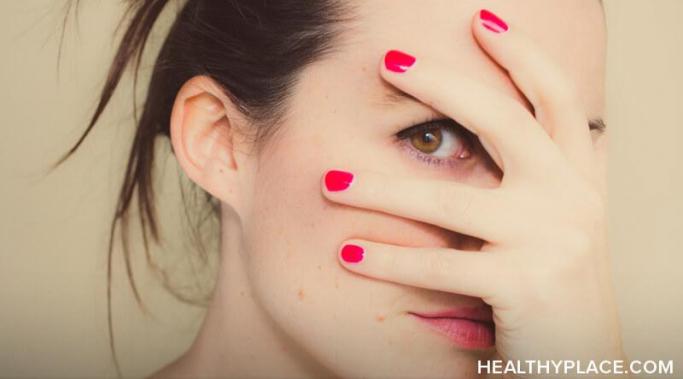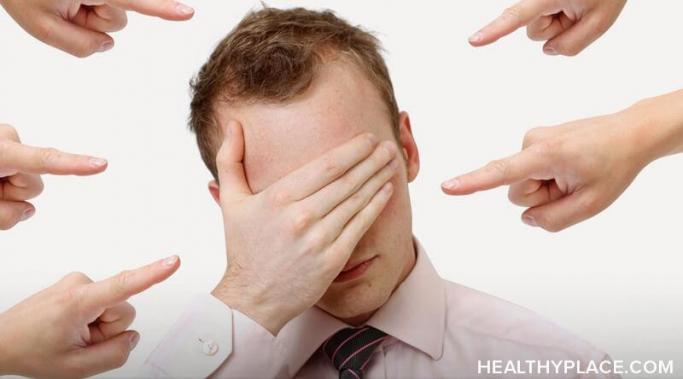Blogs
There are barriers to recovery from posttraumatic stress disorder (PTSD). Mental illness recovery often begins as an uphill battle. It doesn't help that aside from difficult symptoms, those of us living with one or more mental illness also have to combat stigma and wide-spread misinformation--all while navigating a mental healthcare system that often favors the wealthy. Recovery from PTSD is saddled with some very specific barriers. In fact, treatment resistance is actually a symptom of PTSD. If you or a loved one are struggling to recover from trauma, please hold back from judgement. There are reasons for treatment-resistant PTSD behaviors; you or your loved one are not at fault.
Verbal abuse and the codependent love addict often go hand in hand. There are several different types of love addicts such as the obsessive love addict, the sex addict, the relationship addict, the codependent love addict and the narcissistic love addict. Some of the different types even complement one another like magnets with opposite charges, an obvious attraction with a force difficult to interrupt. The codependent love addict pairs both painfully and perfectly with the narcissistic love addict. Verbal abuse is a routine offense for a narcissist in a relationship and accepting abuse is typical for a codependent love addict. Discovering the signs and symptoms of a codependent love addiction may be illuminating as well as an important step toward recovery.
Never give up hope. Sometimes in your life, it comes down to seconds before you feel like the whole world is going to fall apart--your whole body is filled with disappointment and you don't know if you can keep on fighting. That was me, along with the million other fans, yesterday during the Minnesota Vikings vs New Orlean Saints playoff game. But with 10 seconds left, a miracle happens that reminds me that if you never give up hope, what you may think is impossible can change everything.
Your identity with mental illness can hurt your recovery. Many people identify with suffering from a mental illness and it becomes a part of who they are. This identity with their mental illness can hurt their recovery as they become so attached to the mental health label they do not know who they are without it. Being depressed, anxious, or mentally unwell in any capacity is how they know and see themselves. They cannot fully recover because they are carrying this part of themselves so close, they cannot or don’t know how to let it go.
Using mental illnesses as insults is invalidating and harmful. These days, it’s hard to go far without coming across the topic of mental health and mental illness. Considering it’s still such a taboo subject that people shy away from, this seems like something we should be rejoicing over as advocates and activists — and I would, but for the fact that it’s still being spoken of in negative, stigmatizing words. Although people are mentioning mental illness seemingly more and more, all it’s doing it adding to the already existing stigma since mental illness is being used to insult people.
Managing disruptive mood dysregulation disorder (DMDD) in the classroom isn't as simple as knowing how to prevent DMDD behaviors. Yet parents of children with DMDD are often expected to have immediate solutions for teachers and caregivers in our children's lives. Symptoms of DMDD are tough for even parents to handle, and immediate solutions don't exist, but there are doable small steps that can help manage DMDD in the classroom.
If you ignore self-care in recovery from addiction, you're putting yourself at risk for relapse. So, are you burning the candle at both ends or do you make everything else a priority, always putting yourself on the back burner? Not making self-care in recovery from addiction a priority is dangerous because self-care is the foundation we build our recovery on. We are learning to love and respect ourselves by practicing mindfulness, living in moderation, implementing healthy boundaries, improving sleep patterns, eating healthily and exercising. Self-care in recovery from addiction must be a priority and can be broken down into three parts.
If you're struggling with confidence and anxiety, then feeling self-confident and safe in the world around you is hard. Your brain is stuck in a stress-response mode, making you feel overwhelmed and uneasy. Anxiety isn't a choice; it's due to your biology, your environment and past experiences in the world that trigger doubt or fear. The more we know about the science of anxiety or anxiety disorders and what contributes to our level of distress, the more confident we become in our ability to overcome it.
January depression can be difficult (as depression can be during other winter months), but creativity can help you fight depression and hopefully find some ways to enjoy winter with depression. After the holidays, it can be hard for some of us to get back into the mundane day-to-day routine, and depression may only exacerbate that feeling. Finding creative ways to counteract January depression is essential if we're going to find pleasure in our daily lives, especially during the bleakness of winter.
Recovery after my first schizophrenic episode crosses my mind each year in January. I like this time of year. Not only is the craziness of the holidays over, but everyone seems to slow down for a few months. Of course, I still have to be careful at this time of year because of my seasonal affective disorder (SAD). But I think I like January because, in January 1999, I recovered after my first schizophrenic episode.










I believe she will only be able to rid herself of her demons, and hopefully her BPD as well, when she's ready to confront the abuse of her father. If she can put the blame where it belongs, she may stop projecting that victim/perpetrator cycle on the present men in her life. These demons are a metaphor for the purgatory she has created for herself. That reality has consequences in the real world, but it need not be real in the tangible sense. Exorcising her demons will require the expenditure of real physical energy and probably the destruction of aspects of her personality. If this ever happens, and it's possible but not probable, then these demons will evaporate. They are only as real as one's personality is real. In short, reality is not the question, it's what you make of the things you feel to be real.